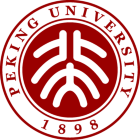
Credit: Peking University International Cancer Institute (PKUICI)
In China, around 70,000 new cases of leukaemia are reported every year. As a leader in haematopoietic stem cell transplantation, a team from Peking University People’s Hospital proposed a novel treatment regime, called the ‘Beijing Protocol’, which prevents graft rejection and the graft-versus-host disease in haploidentical bone marrow transplantation. It is now widely used in China and abroad for leukaemia treatment.
Peking University’s (PKU) strengths in cancer research and treatment extend beyond leukaemia to include melanoma, digestive tract, lung, and breast cancers. Spearheading basic, clinical, and pharmaceutical research on cancer, it also proposed guidelines for treating gastric cancer.
To better integrate the university’s multidisciplinary forces to address inherent problems in cancer diagnosis and treatment, Peking University International Cancer Institute (PKUICI) was established in 2019. With support from PKU’s schools of basic medical sciences, life sciences, pharmaceutical sciences, public health, and engineering, the Biomedical Pioneering Innovation Center and affiliated hospitals, PKUICI serves as a supporting hub for PKU’s cancer research. It uses the latest technologies, including precision medicine, big data, artificial intelligence, single cell sequencing and molecular imaging.
PKUICI is keen to attract world-class scientists and research teams. It is geared towards becoming a leading cancer research and treatment centre.



